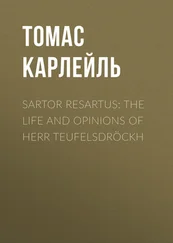Томас Карлейль - The Life of Friedrich Schiller
Здесь есть возможность читать онлайн «Томас Карлейль - The Life of Friedrich Schiller» — ознакомительный отрывок электронной книги совершенно бесплатно, а после прочтения отрывка купить полную версию. В некоторых случаях можно слушать аудио, скачать через торрент в формате fb2 и присутствует краткое содержание. Жанр: Биографии и Мемуары, Философия, foreign_edu, foreign_antique, на английском языке. Описание произведения, (предисловие) а так же отзывы посетителей доступны на портале библиотеки ЛибКат.
- Название:The Life of Friedrich Schiller
- Автор:
- Жанр:
- Год:неизвестен
- ISBN:нет данных
- Рейтинг книги:3 / 5. Голосов: 1
-
Избранное:Добавить в избранное
- Отзывы:
-
Ваша оценка:
- 60
- 1
- 2
- 3
- 4
- 5
The Life of Friedrich Schiller: краткое содержание, описание и аннотация
Предлагаем к чтению аннотацию, описание, краткое содержание или предисловие (зависит от того, что написал сам автор книги «The Life of Friedrich Schiller»). Если вы не нашли необходимую информацию о книге — напишите в комментариях, мы постараемся отыскать её.
The Life of Friedrich Schiller — читать онлайн ознакомительный отрывок
Ниже представлен текст книги, разбитый по страницам. Система сохранения места последней прочитанной страницы, позволяет с удобством читать онлайн бесплатно книгу «The Life of Friedrich Schiller», без необходимости каждый раз заново искать на чём Вы остановились. Поставьте закладку, и сможете в любой момент перейти на страницу, на которой закончили чтение.
Интервал:
Закладка:
Amelia, the only female in the piece, is a beautiful creation; but as imaginary as her persecutor Franz. Still and exalted in her warm enthusiasm, devoted in her love to Moor, she moves before us as the inhabitant of a higher and simpler world than ours. " He sails on troubled seas," she exclaims, with a confusion of metaphors, which it is easy to pardon, "he sails on troubled seas, Amelia's love sails with him; he wanders in pathless deserts, Amelia's love makes the burning sand grow green beneath him, and the stunted shrubs to blossom; the south scorches his bare head, his feet are pinched by the northern snow, stormy hail beats round his temples—Amelia's love rocks him to sleep in the storm. Seas, and hills, and horizons, are between us; but souls escape from their clay prisons, and meet in the paradise of love!" She is a fair vision, the beau idéal of a poet's first mistress; but has few mortal lineaments.
Similar defects are visible in almost all the other characters. Moor, the father, is a weak and fond old man, who could have arrived at gray hairs in such a state of ignorance nowhere but in a work of fiction. The inferior banditti are painted with greater vigour, yet still in rugged and ill-shapen forms; their individuality is kept up by an extravagant exaggeration of their several peculiarities. Schiller himself pronounced a severe but not unfounded censure, when he said of this work, in a maturer age, that his chief fault was in 'presuming to delineate men two years before he had met one.'
His skill in the art of composition surpassed his knowledge of the world; but that too was far from perfection. Schiller's style in the Robbers is partly of a kind with the incidents and feelings which it represents; strong and astonishing, and sometimes wildly grand; but likewise inartificial, coarse, and grotesque. His sentences, in their rude emphasis, come down like the club of Hercules; the stroke is often of a crushing force, but its sweep is irregular and awkward. When Moor is involved in the deepest intricacies of the old question, necessity and free will, and has convinced himself that he is but an engine in the hands of some dark and irresistible power, he cries out: "Why has my Perillus made of me a brazen bull to roast men in my glowing belly?" The stage-direction says, 'shaken with horror:' no wonder that he shook!
Schiller has admitted these faults, and explained their origin, in strong and sincere language, in a passage of which we have already quoted the conclusion. 'A singular miscalculation of nature,' he says, 'had combined my poetical tendencies with the place of my birth. Any disposition to poetry did violence to the laws of the institution where I was educated, and contradicted the plan of its founder. For eight years my enthusiasm struggled with military discipline; but the passion for poetry is vehement and fiery as a first love. What discipline was meant to extinguish, it blew into a flame. To escape from arrangements that tortured me, my heart sought refuge in the world of ideas, when as yet I was unacquainted with the world of realities, from which iron bars excluded me. I was unacquainted with men; for the four hundred that lived with me were but repetitions of the same creature, true casts of one single mould, and of that very mould which plastic nature solemnly disclaimed. * * * Thus circumstanced, a stranger to human characters and human fortunes, to hit the medium line between angels and devils was an enterprise in which I necessarily failed. In attempting it, my pencil necessarily brought out a monster, for which by good fortune the world had no original, and which I would not wish to be immortal, except to perpetuate an example of the offspring which Genius in its unnatural union with Thraldom may give to the world. I allude to the Robbers .' 5 5 Deutsches Museum v. Jahr 1784, cited by Doering.
Yet with all these excrescences and defects, the unbounded popularity of the Robbers is not difficult to account for. To every reader, the excitement of emotion must be a chief consideration; to the mass of readers it is the sole one: and the grand secret of moving others is, that the poet be himself moved. We have seen how well Schiller's temper and circumstances qualified him to fulfil this condition: treatment, not of his choosing, had raised his own mind into something like a Pythian frenzy; and his genius, untrained as it was, sufficed to communicate abundance of the feeling to others. Perhaps more than abundance: to judge from our individual impression, the perusal of the Robbers produces an effect powerful even to pain; we are absolutely wounded by the catastrophe; our minds are darkened and distressed, as if we had witnessed the execution of a criminal. It is in vain that we rebel against the inconsistencies and crudities of the work: its faults are redeemed by the living energy that pervades it. We may exclaim against the blind madness of the hero; but there is a towering grandeur about him, a whirlwind force of passion and of will, which catches our hearts, and puts the scruples of criticism to silence. The most delirious of enterprises is that of Moor, but the vastness of his mind renders even that interesting. We see him leagued with desperadoes directing their savage strength to actions more and more audacious; he is in arms against the conventions of men and the everlasting laws of Fate: yet we follow him with anxiety through the forests and desert places, where he wanders, encompassed with peril, inspired with lofty daring, and torn by unceasing remorse; and we wait with awe for the doom which he has merited and cannot avoid. Nor amid all his frightful aberrations do we ever cease to love him: he is an 'archangel though in ruins;' and the strong agony with which he feels the present, the certainty of that stern future which awaits him, which his own eye never loses sight of, makes us lenient to his crimes. When he pours forth his wild recollections, or still wilder forebodings, there is a terrible vehemence in his expressions, which overpowers us, in spite both of his and their extravagance. The scene on the hills beside the Danube, where he looks at the setting sun, and thinks of old hopes, and times 'when he could not sleep if his evening prayer had been forgotten,' is one, with all its improprieties, that ever clings to the memory. "See," he passionately continues, "all things are gone forth to bask in the peaceful beam of the spring: why must I alone inhale the torments of hell out of the joys of heaven? That all should be so happy, all so married together by the spirit of peace! The whole world one family, its Father above; that Father not mine ! I alone the castaway, I alone struck out from the company of the just; not for me the sweet name of child, never for me the languishing look of one whom I love; never, never, the embracing of a bosom friend! Encircled with murderers; serpents hissing around me; riveted to vice with iron bonds; leaning on the bending reed of vice over the gulf of perdition; amid the flowers of the glad world, a howling Abaddon! Oh, that I might return into my mother's womb;—that I might be born a beggar! I would never more—O Heaven, that I could be as one of these day-labourers! Oh, I would toil till the blood ran down from my temples, to buy myself the pleasure of one noontide sleep, the blessing of a single tear. There was a time too, when I could weep—O ye days of peace, thou castle of my father, ye green lovely valleys!—O all ye Elysian scenes of my childhood! will ye never come again, never with your balmy sighing cool my burning bosom? Mourn with me, Nature! They will never come again, never cool my burning bosom with their balmy sighing. They are gone! gone! and may not return!"
No less strange is the soliloquy where Moor, with the instrument of self-destruction in his hands, the 'dread key that is to shut behind him the prison of life, and to unbolt before him the dwelling of eternal night,'—meditates on the gloomy enigmas of his future destiny. Soliloquies on this subject are numerous,—from the time of Hamlet, of Cato, and downwards. Perhaps the worst of them has more ingenuity, perhaps the best of them has less awfulness than the present. St. Dominick himself might shudder at such a question, with such an answer as this: "What if thou shouldst send me companionless to some burnt and blasted circle of the universe; which thou hast banished from thy sight; where the lone darkness and the motionless desert were my prospects—forever? I would people the silent wilderness with my fantasies; I should have Eternity for leisure to examine the perplexed image of the universal woe."
Читать дальшеИнтервал:
Закладка:
Похожие книги на «The Life of Friedrich Schiller»
Представляем Вашему вниманию похожие книги на «The Life of Friedrich Schiller» списком для выбора. Мы отобрали схожую по названию и смыслу литературу в надежде предоставить читателям больше вариантов отыскать новые, интересные, ещё непрочитанные произведения.
Обсуждение, отзывы о книге «The Life of Friedrich Schiller» и просто собственные мнения читателей. Оставьте ваши комментарии, напишите, что Вы думаете о произведении, его смысле или главных героях. Укажите что конкретно понравилось, а что нет, и почему Вы так считаете.












